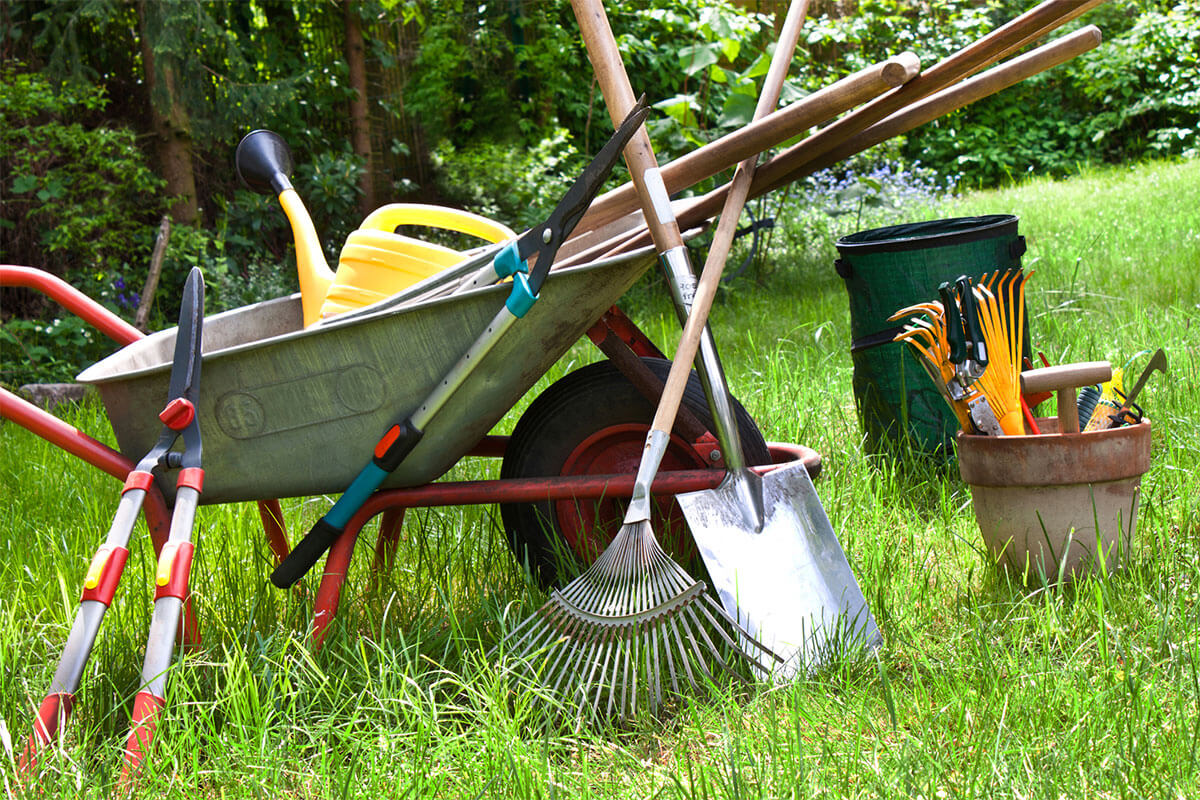I have learned that gardening is easier with the right tools. I presently have three different kinds of shovels, a cultivator, two kinds of hoes, three different hand hoes, two different sprayers—you get the idea. I want to work smarter, not harder. In a pinch, I can use the wrong tool and get a job done, but experience has taught me that I will save time and effort if I use the proper tool the first time.
I have learned that teaching requires a myriad of tools as well. Many teachers get in the rut of using just one or a few methods to get the truth across. These are the boring, ineffective teachers that we all sat under at some time during our life. Their philosophy is, “It’s not my fault my student doesn’t learn.” I beg to differ. It is my job to transfer knowledge. If there was no transfer, I did not do my job. Teaching is not telling. It is much more than that. It is the recognition that I need to put as much effort into presentation of facts as a master chef into his banquet. It is my job to capture the concentration of the shortest attention span and force-fit if need be the foundation facts for a well-rounded adult to be. A wise teacher will learn to sharpen familiar tools and be ever ready to add new ones where they are a benefit.
Do you teach in a monotone? God gave us a voice capable of change in volume, pitch, and intensity. Do you deliberately lower your volume to a perceptible whisper to force those on the border of not paying attention to listen? Do you sometimes raise the volume to a shout to startle the daydreamer back to the classroom? You should be able to cause your students to come to attention, laugh, cry, fear, and sympathize with only your voice. Then there is the Power of the Pause. Silence can be an effective tool as well. A three-second pause, when used skillfully, will capture even the most over-active imagination. Pity the poor student who has to sit and listen to the same voice all class time long.
There should be a pleasant expression awaiting every student at the beginning of the class. You may have to hide personal problems, but students should never be able to sense stress. Get a good night’s sleep, meet with God in the morning, and take proper care of your body to guarantee your children the solace they need. There should be an energy in your eyes that says: “I have something good for you today.” There should be compassion in your heart that will show in your eyes. The majority of the time there should be sunshine in your smile. One should also master the “dirty-look” of displeasure; my mother could stop a train with her frown. That look should not appear often, but when displayed it should provoke respect and fear. A master-teacher can control his class for a time with only his expression.
There is much to be said about body language. Sitting or standing erect communicates that “I am ready; I am paying attention.” Slouching, head down displays inattention and disrespect. Truth is demonstrated by looking one in the eye; falsehood is exposed by looking askance. A resourceful teacher will move about the room, if for no other reason than to keep students aware of your presence. Try to control your room for a moment with only your hands. Do not use your voice or facial expression. It can be done, and expert instructors know how to do it.
The eye gate is a primary entrance into the mind. It has been said, “Tell me, and I will forget; show me, and I will remember.” Yes, the voice is a primary tool, but combining it with the eyes makes for accumulative retention. Lazy teachers use only the Tell-Me method. Better teachers use the board and write it down as they say it. Master teachers use color and visuals to multiply material mastery. Do not be impatient with yourself. It takes time to master the material, but when you have done that, master the presentation as well.
One last note, it is not illegal to have fun in class. A review game will make boring fact memorization exciting. Special days, show and tell, and Interest Centers when work is done will all make your classroom enjoyable. Happy students are better learners. Play a little. Tease (kindly) a little. Laugh a little (even at yourself). You will know you have begun to be skilled with these tools when your students sigh in disappointment and delay in leaving when class is over.
Just as the gardener sharpens and keeps his tools ready, a master-teacher will be continually analyzing and using his tools.
Share this post

Jim Carey, Christian School Teacher
Jim Carey was the first staff member hired by Pastor Trieber in 1976. For over 40 years, he has served in many capacities. He has taught in the Christian school since its inception and has taught junior church every Sunday for that entire time as well.


Stay connected